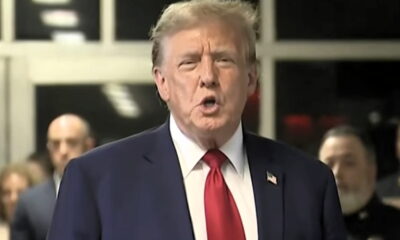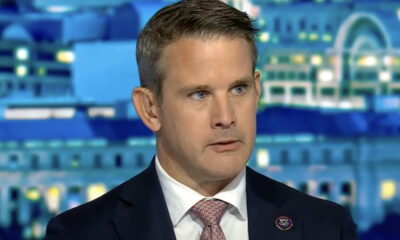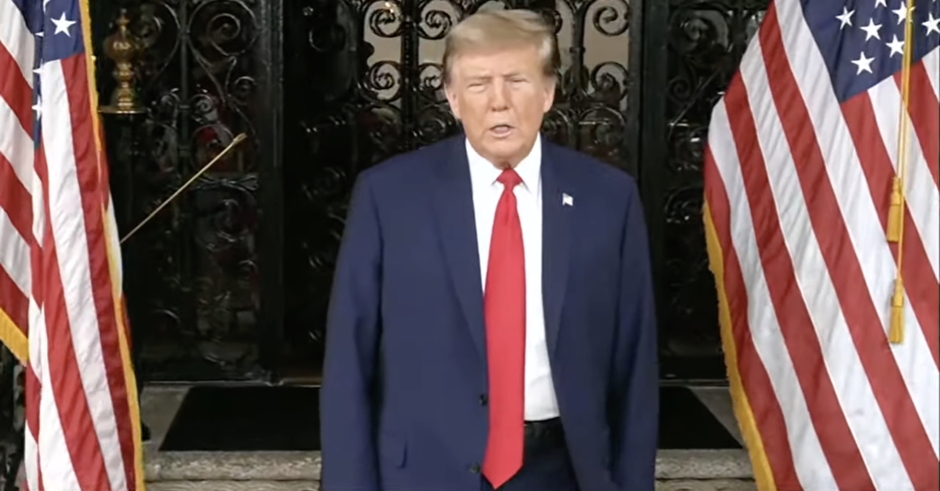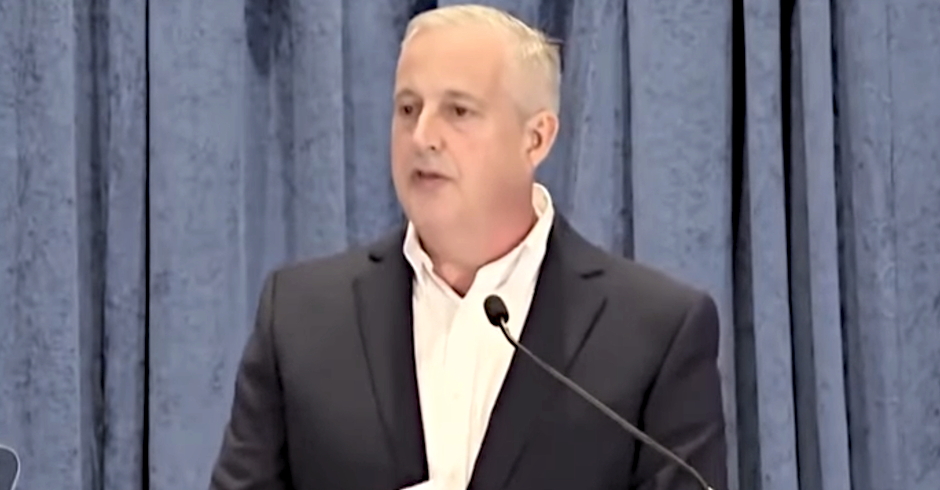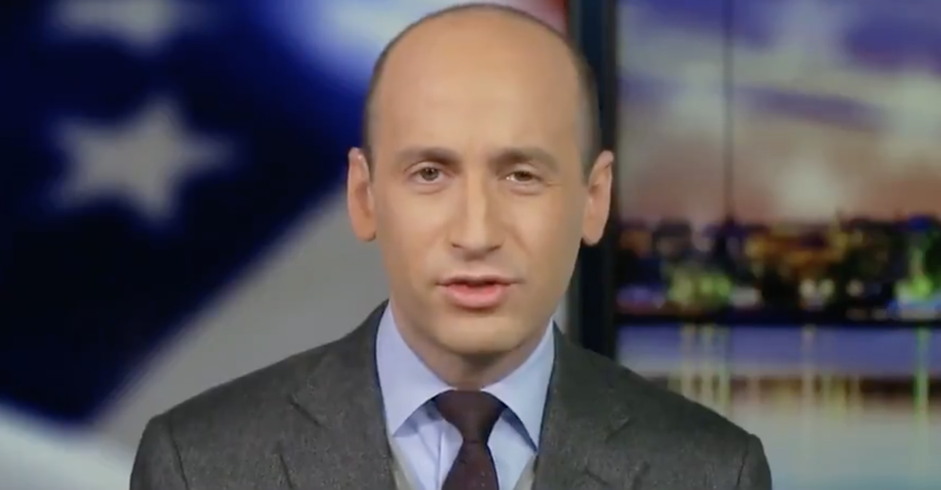COMMENTARY
Chief Justice John Roberts Isn’t Our Savior From Trump — He’s the President’s Chief Enabler
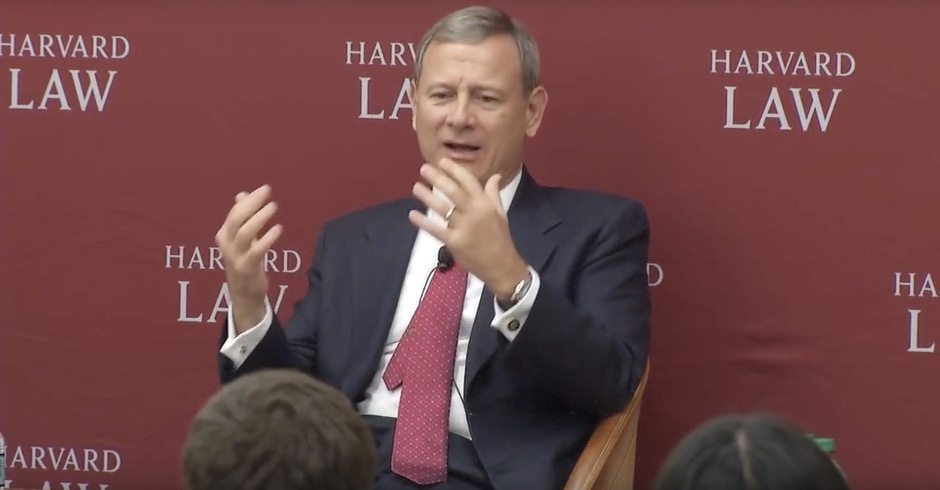
When the Justice Department and the Commerce Department announced on Tuesday that the case was closed on the Census’ citizenship question and the query would be left off the 2020 survey, I was immediately confused. Though Supreme Court Chief Justice John Roberts had written a majority opinion for last week ruling that the Commerce Department’s fake justification for the question warranted blocking the agency from including it, he left an opening for the Trump administration to push forward with the effort as long as it provided another excuse.
And right on cue, President Donald Trump tweeted Wednesday that his administration wasn’t dropping the question after all, and the Justice Department announced that it is exploring paths to keep the query on the Census. Thursday morning, Axios reported that the president is considering an executive order directing the Commerce Department to include the question after all.
Some are arguing that this shows Trump is preparing to disobey the Supreme Court. Former federal prosecutor and legal analyst Joyce Vance said that by including the question, Trump could be committing an “unconstitutional” act.
But unfortunately, this does not appear to be the case. Roberts’ ruling was particularly narrow, and he appears to have given Trump plenty of room to wiggle out of it.
When Roberts affirmed a lower court’s decision to block the citizenship question and remand the issue back to the agency, he did so for one reason: its justification for the questions’ inclusion was obviously false. Commerce Secretary Wilbur Ross had claimed that he included the question based on the Justice Department’s view that it needed the answer to enforce the Voting Rights Act. The public record contradicted these claims, and Robert concluded that the reason the administration provided “seems to have been contrived.”
Many hailed this as a bold move for the chief justice, essentially calling out the administration for lying. However, saying that the Trump administration is lying is no more praiseworthy that accurately describing the present weather. Of course the president and his officials are lying. It’s what they do. Not calling it out would be a derogation of duty.
And Roberts made it quite clear that it was only because the administration had been so brazen in its dishonesty that the Census question could be blocked:
Unlike a typical case in which an agency may have both stated and unstated reasons for a decision, here the VRA enforcement rationale—the sole stated reason—seems to have been contrived. The reasoned explanation requirement of administrative law is meant to ensure that agencies offer genuine justifications for important decisions, reasons that can be scrutinized by courts and the interested public. The explanation provided here was more of a distraction. In these unusual circumstances, the District Court was warranted in remanding to the agency.
This makes quite clear that Roberts is leaving Trump a loophole. It’s “typical,” he said, that an agency may conceal some of its reasons for taking a certain enforcement step. Since the VRA explanation was the sole reason given for the citizenship question, and yet it was “more of a distraction” than a believable claim, Roberts upheld the lower court’s ruling.
But this leaves open the possibility that the Trump administration could come up with another, non-fake reason for including the citizenship question, and that should suffice to allay Roberts’ doubts. It doesn’t matter if the administration has other, “unstated” reasons for including the question, because Roberts said this is “typical.” All it needs is a non-bogus justification in addition to whatever the true reason was that the question was initially proposed.
Perhaps it seems that, since the administration was obviously trying to hide its genuine reason to include the question — which was almost certainly to discriminate against Hispanic people and disadvantage Democrats — any additional justification that Trump officials might provide would also clearly be a pretext. But this isn’t so. To satisfy Roberts, the only thing Trump officials should have to do is imagine some possible benefit to including the citizenship question on the Census. It’s not clear the administration even has to actually think this supposed benefit is, in fact, a benefit — the explanation would only have to not be obviously false. That would remove the “unusual circumstances” that Roberts said merited blocking the citizenship question.
To be clear, I’m not defending Trump or Roberts. The question was clearly designed for discriminatory and illegitimate purposes. But as Joshua Matz argued at the law blog Take Care, Roberts seemed to dismiss many of the good reasons he might have endorsed for blocking the citizenship question:
The result is a Supreme Court opinion that eliminates nearly every constitutional, statutory, and regulatory objection that has been raised against the citizenship question, and that describes the decision to include this question as reasonable in light of empirical uncertainty about the best way to calculate the total number of citizens.
Ultimately, the Chief’s only complaint is that Ross offered a rationale for this decision that—to borrow a phrase from Scalia—taxes the credulity of the credulous…
At bottom, then, the Chief’s objection concerns only the shamelessness of the administration’s bad faith. Before he dirties his hands upholding Ross’s decision, he has required Ross to clean things up a bit, thus ensuring that the citizenship question enjoys a patina of legitimacy when he finally okays it.
The Justice Department, it seemed, did not initially agree with my or Matz’s assessment of the ruling, because it concluded that the citizenship question was dead. But Trump seems likely to be proven right in the end, and he will probably get his way.
One reason the Justice Department may have been inclined to throw in the towel is that its own credibility was on the line. It argued multiple times before the court that the administration had a hard June 30, 2019 deadline before it had to begin printing the Census forms in order to comply with the legally mandated deadline. Trying to find a new justification for including the citizenship question, and having that justification vetted by the courts, could extend well past that deadline. Trump, however, doesn’t put much stock in his administration’s credibility.
And while the court won’t be happy about having been lied to on this matter, it’s hard to see how this could make a difference in the final decision of including the question. The Trump administration could always say it previously believed June 30 to be a hard deadline, but it found an alternative route by, say, printing an addendum to the Census forms that includes the citizenship question.
If Trump goes through with these shenanigans, as he seems intent on doing, he will have made a mockery of the judiciary. But Roberts will have let him. The chief justice has made clear that he intends on giving the Trump administration an excessive amount of leeway, as the decision to allow the Muslim ban to stay in effect first demonstrated.
Undoubtedly, Roberts doesn’t seem to like Trump very much. Last December, he took the rare step of appearing to respond directly to some of Trump’s claims when the chief justice declared that there are no “Obama judges or Trump judges.”
And yet Roberts was elevated to the court for a purpose, and that purpose was the protection and promotion of the conservative movement. That means empowering the executive branch and letting Republican presidents get away with abusing their office. By directly lying to the court and the American people, the Trump administration went farther than even Roberts was willing to bear in this instance. Not so far, though, that Roberts wasn’t willing to let Trump have a do-over.
He’s willing, in other words to be Trump’s enabler, even if he doesn’t like him.
It’s possible Roberts will surprise me and block another attempt by Trump to include the question. I seriously doubt it, but Roberts does have the capacity to surprise. Nevertheless, the chief justice gave Trump the window in his latest ruling to push the envelope even further, to try to see what he could get away with. By writing a more decisive ruling, he could have stopped this nonsense with the citizenship question in its tracks. Instead, he allowed Trump to drag out the fight.
Image: Screenshot via YouTube
Enjoy this piece?
… then let us make a small request. The New Civil Rights Movement depends on readers like you to meet our ongoing expenses and continue producing quality progressive journalism. Three Silicon Valley giants consume 70 percent of all online advertising dollars, so we need your help to continue doing what we do.
NCRM is independent. You won’t find mainstream media bias here. From unflinching coverage of religious extremism, to spotlighting efforts to roll back our rights, NCRM continues to speak truth to power. America needs independent voices like NCRM to be sure no one is forgotten.
Every reader contribution, whatever the amount, makes a tremendous difference. Help ensure NCRM remains independent long into the future. Support progressive journalism with a one-time contribution to NCRM, or click here to become a subscriber. Thank you. Click here to donate by check.
 |

